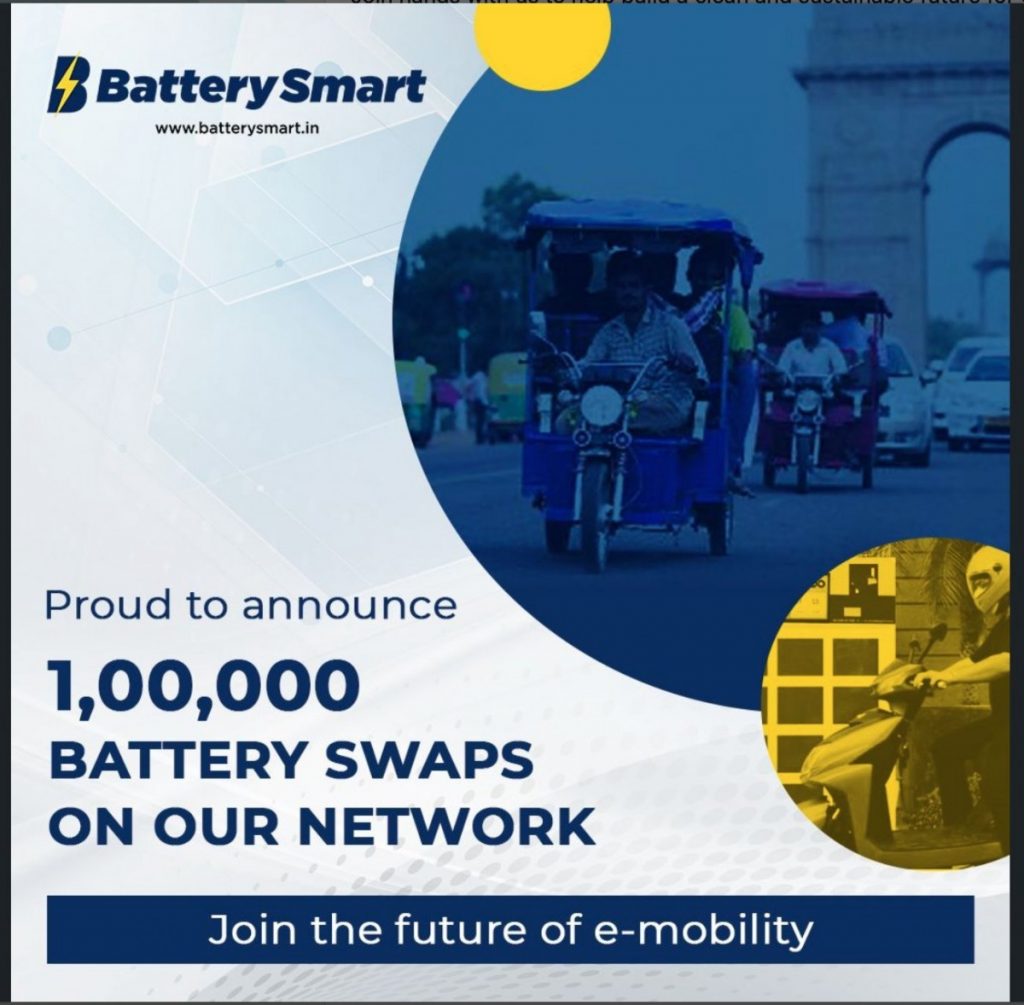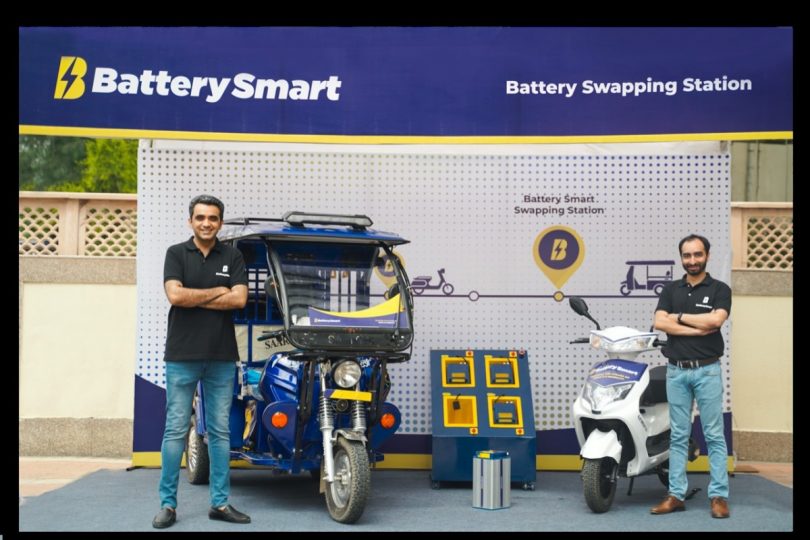Battery Smart, an emerging battery-swapping network for electric two and three-wheelers, announces its plans for the future. The company aims to have a swap station at every one square km area in the Delhi-NCR region. The company has set an optimistic target of having USD 17 billion swapping markets by 2025. With the growing demand for electric vehicles in the market, a viable e-mobility infrastructure is quite crucial. And battery-swapping stations do fulfil all the requirements and also have some benefits over charging stations. One of the significant advantages is the charging time. Customers can simply swap their depleted battery with a fully charged one in under 2 minutes. This infrastructure offers the EV riders a much robust and hassle-free ecosystem.
Current Network Of Swap Stations By Battery Swap
The company started its operations in 2020 by setting up its first swap station at Janakpuri. Today, there are a total of 71 Swap Stations that serve over 1,500 battery swaps each day. This battery-swapping network aims to transform the future of electric mobility. Range anxiety is one of the common questions asked by consumers before buying an electric vehicle. And thus, a wide infrastructure of charging and battery swap stations will play an important role in this transition to e-mobility. The company mentioned that this battery swapping ecosystem is specifically helping e-rickshaw users greatly. The company has been in talks with multiple OEMs, battery manufacturers and other players in the industry.
Affordable, Reliable and Fast
The company is offering the battery-as-as-a service, and hence the consumer need not pay upfront. This helps in reducing the cost and investment. The common problems of EVs like long charging time, unreliable battery life, range anxiety, and high-up front costs can be minimized by adopting this battery swap service. This integrated platform aims to connect key players in the ecosystem. These include EV owners, battery manufacturers, leasing partners and fleet operators.
Also Read:
- eZee swappable battery for auto-rickshaws revealed.
- Hop Energy Network battery swapping & charging station launched.



